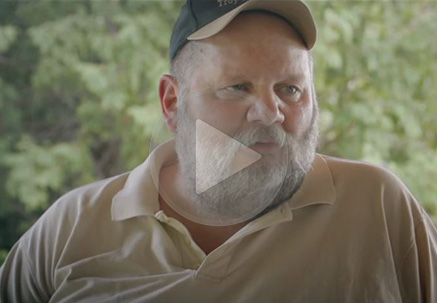From Empty to Full
A popular children’s book tells the story of a poor, country boy who took off his cap to honor the king. An identical hat appeared instantly in its place on his head, inciting the king’s anger for what appeared to be disrespect. Bartholomew removed hat after hat while being escorted to the palace for punishment. Each time, a new one appeared in its place. The hats grew increasingly fancy, bearing precious jewels and feather plumes. The 500th hat was the envy of King Derwin, who pardoned Bartholomew and purchased the hat for 500 pieces of gold. At last, Bartholomew’s head was bare; he walked home with freedom and money to support his family.
A widow came to Elisha in financial distress, fearing her children would be sold into slavery to pay her debts (2 Kings 4). She had no assets other than a jar of oil. God multiplied that oil to fill enough borrowed jars to settle the debts plus care for their daily needs (v. 7). God provided financially for the widow in much the same way He provides salvation for me. I am bankrupted by sin, but Jesus paid my debt—and offers me eternal life as well!
Without Jesus, we are each like the poor, country boy with no means to pay our King for our offenses against Him. God miraculously supplies the extravagant ransom on our behalves, and ensures those who trust in Him will have life abundant forever.

Apart but Not Abandoned
I had a lump in my throat as I said good-bye to my niece on the eve of her move to Massachusetts to attend graduate school at Boston University. Though she had been away four years as an undergraduate, she hadn’t left our state. A two and a one-half-hour drive easily reunited us. Now she would be more than 800 miles away. No longer would we meet regularly to talk. I had to trust that God would take care of her.
Paul likely felt the same way as he said good-bye to the elders of the church in Ephesus. Having established the church and taught them for three years, Paul concluded these elders to be as close as family to him. Now that Paul was headed to Jerusalem, he would not see them again.
But Paul had parting advice for the Ephesians. Though they would no longer have Paul as their teacher, the Ephesians did not have to feel abandoned. God would continue to train them through “the word of his grace” (Acts 20:32) to lead the church. Unlike Paul, God would always be with them.
Whether it’s children we launch from the nest or other family and friends who move away—saying good-bye can be very difficult. They move beyond our influence and into their new lives. When we let go of their hands, we can trust that God has them in His. He can continue to shape their lives and meet their real needs— more than we ever could.

Living in Tents
Growing up in Minnesota, a place known for its many beautiful lakes, I loved to go camping to enjoy the wonders of God’s creation. But sleeping in a flimsy tent wasn’t my favorite part of the experience—especially when a rainy night and a leaky tent resulted in a soggy sleeping bag.
I marvel to think that one of the heroes of our faith spent a hundred years in tents. When he was 75 years old, Abraham heard God’s call to leave his country so the Lord could make him into a new nation (Gen. 12:1–2). Abraham obeyed, trusting that God would follow through on His promise. And for the rest of his life, until he died at 175 (25:7), he lived away from his home country in tents.
We may not have the same call as Abraham did to live nomadically, but even as we love and serve this world and the people in it, we may long for a deeper experience of home, of being rooted here on earth. Like Abraham, when the wind whips our flimsy covering or the rain soaks through, we can look with faith for the city to come, whose “architect and builder is God” (Heb. 11:10). And like Abraham, we can find hope that God is working to renew His creation, preparing a “better country—a heavenly one” to come (v. 16).

What Simon Said
A man named Refuge Rabindranath has been a youth worker in Sri Lanka for more than ten years. He often interacts with the youth late into the night—playing with them, listening to them, counseling and teaching them. He enjoys working with the young people, but it can be disheartening when promising students sometimes walk away from the faith. Some days he feels a bit like Simon Peter in Luke 5.
Simon had been working hard all night but caught no fish (Luke 5:5). He felt discouraged and tired. Yet when Jesus told him to “put out into deep water, and let down the nets for a catch” (v. 4), Simon replied, “Because you say so, I will let down the nets” (v. 5).
Simon’s obedience is remarkable. As a seasoned fisherman, he knew that fish move to the bottom of the lake when the sun is up, and the dragnets they used could not go deep enough to catch those fish.
His willingness to trust Jesus was rewarded. Not only did Simon catch a large number of fish, he gained a deeper understanding of who Jesus is. He moved from calling Jesus “Master” (v. 5) to calling Him “Lord” (v. 8). Indeed, “listening” often allows us to see the works of God firsthand and draw closer to Him.
Perhaps God is calling you to “let down your nets again.” May we reply as Simon did: “Because You say so, Lord, I will.”
Bring families together around God’s Word.
You can help bring families together around God’s Word.

